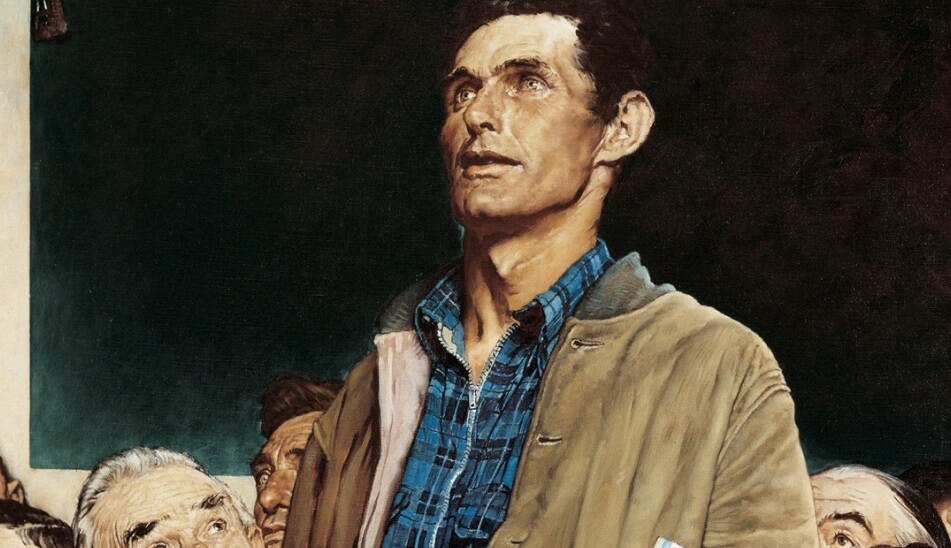Religious Nominalism vs Political Nominalism

Many Christians lament the problem of nominalism within American churches. By nominalism, I mean lukewarm Christianity, middle-of-the-road Christianity, Christianity that has little effect on the way a man lives his life. To what extent does Christianity change the way you live? If you pulled a half a dozen shoppers out of line at Kroger, could you tell who or what they worshipped by merely cataloguing what they were purchasing and how they were dressed? Or do a Catholic, an atheist, a Presbyterian, a Buddhist and an agnostic all basically look alike, sound alike, enjoy alike, and shop alike?
If all these persons are indistinguishable from one another, perhaps a little anxiety is called for.
In the last several weeks, I have observed Anglican friends happy for a Trump win and Anglican friends sad for a Clinton loss. Some of my Orthodox friends are giddy for a Trump win, other Orthodox friends are devastated. Catholic and Presbyterian friends are similarly all over the board. I have sometimes thought, while observing friends with adversarial political sympathies, “And yet all these people would certainly get along at a dinner party.” These are people who enjoy good food, people with an appreciation for a finely-turned phrase or well-timed joke, and they might all walk around an art museum together sipping Campari and commenting on the beauty of line and color. Generally speaking, these political enemies are book readers and moviegoers. I would wager many of them are similarly moved by the Hallelujah chorus, The Matrix, The Little Prince, and thoughts of home and fears of dying.
Supposing a rather cynical view of religion for a moment, let us say that much of the observable difference between the Catholic and the Orthodox and the Presbyterian is where they steer their cars on Sunday morning and where they steer their web browsers throughout the week. The Catholic is enjoying Richard Neuhaus articles, and the Presbyterian is enjoying John Piper articles, and the Orthodox fellow is enjoying Stephen Freemen articles. From time to time, any of them might begrudgingly agree with Matt Walsh. At the same time, all three are largely unaware of the dogma and history of their church and all three would confess to reading their Bibles too little and praying too infrequently. When asked, “How does your religion shape your life?” they would talk about standards of right and wrong, speak of church attendance, but would not be able to account for religion bearing much weight on more than 4 or 5 of the 168 hours in a week.
Do politics bear more weight on our lives than religion, though? While religion isn’t much determining what we wear or where we shop, I’ve never stood behind a person at the supermarket who had a progressive liberal basket of groceries. It’s hard to spot a Republican in line for a movie. In America, every four years we lose our minds for a little while and speak as though our political convictions are significant, but those convictions tend to disappear rather quickly as soon as we’re lining up to be amused or fed or have our cars repaired. The typical American does not shape his days based around religion or politics; he does not refuse to eat something, drink something, wear something, plant something, harvest something, destroy something, or build something for political reasons. If religious nominalism is a thing Americans speak of, I suggest we speak of political nominalism, as well. So far as the outward shape of our lives (where most of our money goes, where most of our time goes, where we like to be), I suspect the average man is no more than a mediocre Republican, a lukewarm Democrat, a nominal Libertarian, a middle-of-the-road Distributist, an apathetic anarchist.

Joshua Gibbs
Joshua Gibbs is the director of The Classical Teaching Institute at The Ambrose School. He is the author of Something They Will Not Forget and Love What Lasts. He is the creator of Proverbial and the host of In the Trenches, a podcast for teachers. In addition to lecturing and consulting, he also teaches classic literature through GibbsClassical.com.










